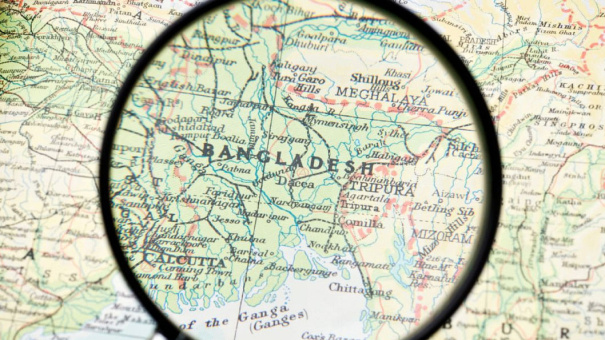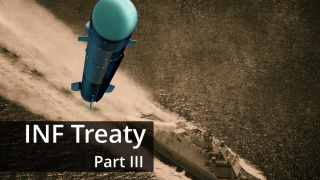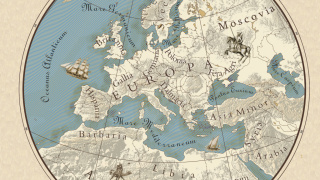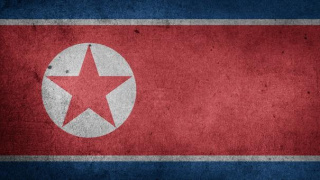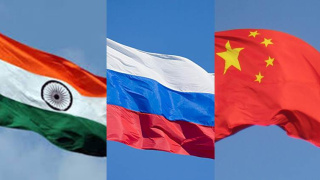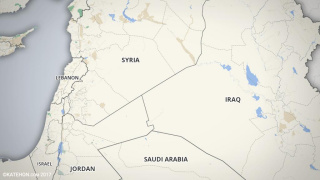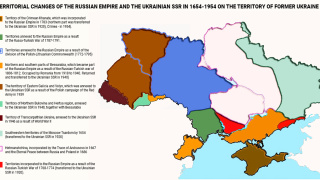Humanitarian corridor from Bangladesh raises alarm in India, Myanmar, and China
After suffering regime change in August 2024 when the US deep state engineered the fall of the elected government of Sheikh Hasina and implanted Mohammed Yunus as the de facto leader in Dhaka, Bangladesh continues to remain hijacked by subversive international forces that are imposing their sinister agenda on this pivotal South Asian state.
It was hoped that the arrival of Donald Trump as the 47th President of the United States will force the Yunus regime to hold free and fair elections, opening the possibility of the return of Sheikh Hasina from India where she had taken refuge and return Dhaka to the path of peace and progress.
But those hopes have so far been belied. Though the Trump administration in its initial few days in office euphorically cut funding of the USAID, the notorious agency that has played a central role in engineering regime changes across the globe, including in Dhaka, under the garb of promoting human rights. But the Trump administration has subsequently failed to demonstrate any visible activism in Bangladesh.
It is important to understand that Bangladesh is country of prime geopolitical importance where the complexion of its leadership can severely impact neighbouring states including Myanmar, India, and the not-so-distant China.
There are clear signs that the Yunus regime is already undermining the interests of these three states. Of late, the United Nations has been pressing an empathetic Dhaka to open a humanitarian corridor to Myanmar’s Rakhine state. This has justifiably raised alarm in New Delhi, Yangon, and Beijing. In Myanmar, the military government’s fears are legitimate. The Arakan Army, a non-state actor hostile to Yangon has taken over large swathes of territory in Rakhine. The government fears that under the garb of a humanitarian corridor, Bangladesh will become a base for channelling weapons to its foes in this province, thus further undermining Yangon’s hold over this territory.
Both India and China are also bound to feel the heat from the political activism shown by the UN, which has taken the baton from the US Deep State, to consolidate regime change in Dhaka, following the departure of Biden administration. For India, instability in Rakhine, is most unwelcome as it can threaten Sittwe port. This India built port is a lifeline for the country’s landlocked northeast. With Kolkata port already congested, Indian planners have visualised the formation of a trade corridor that would leverage the waters of the Kaladan river that flows through a key province in the northeast and empties into the Bay of Bengal. In other words, they envisaged that navigation along the Kaladan river and the use of Sittwe port in Myanmar will rapidly spur economic development in the long-neglected northeast that has been prone to violent and separatist insurgencies in the past. Sittwe is also central to India’s Act East policy, which is essentially designed to develop the northeast as India’s gateway to the Association of South East Asian Nations—a 10 nation power house of Southeast Asia.
Incidentally, in tune with the Kaladan project, India is also engaged in the construction the Asian highway—an undertaking it has taken up jointly with Myanmar and Thailand. The trilateral highway will link India’s northeastern province of Manipur with Myanmar and Thailand. From Mae Sot in Thailand another highway built by the Japanese can connect Manipur with Danang in Vietnam, thereby eliminating northeast India’s physical isolation.
For China, the loss of authority by the Myanmar government in Rakhine is a big blow on the geopolitical canvass. With the US and its allies dominating Malacca straits, a major artery for global trade as it links the Indian and the Pacific oceans, China has been making feverish efforts to reduce its trade reliance on this channel. Consequently, Beijing has gone ahead with its troubled China Pakistan Economic Corridor (CPEC) that gives it direct access to the Indian Ocean through Gwadar—a Pakistani port on the Arabian Sea. In the Bay of Bengal, on the opposite flank of peninsular India, it has developed, not far from Sittwe, its deep-water port of Kyaukphyu, also in Myanmar’s Rakhine province.
Incidentally, Kyaukphyu is the terminus of the China Myanmar Economic Corridor (CMEC), which is part of China’s Belt and Road Initiative-a pan-Eurasian connectivity undertaking. From here, an oil and gas pipeline heads northwards towards Kunming, capital of China’s Yunnan province. That makes Kyauphyu a key node in ensuring China’s energy security.
Unsurprisingly, the UN, pursuing a globalist agenda, has stepped up its campaign for the so-called “humanitarian corridor” from Bangladesh to Myanmar’s Rakhine province that can undermine both China and India. Following the call for the corridor in March by UN Secretary General Antonio Guterres, Fortify Rights, a human rights NGO has been actively calling for establishing this channel, apparently in support of the Rohingya Muslims that reside in large numbers in Rakhine. Rohingyas refugees are also camping in Cox Bazar and its surrounding in Bangladesh following their feud with the Myanmar authorities in the past.
The composition of the Advisory Board of Fortify Rights, reveals its political slant. According to the Fortify Rights website, its six members include Kerry Kennedy, President of Robert F. Kennedy Human Rights; Tomás Ojea Quintana, U.N. Special Rapporteur for human rights in North Korea; Tyler Giannini, Director of the International Human Rights Clinic at Harvard Law School; Phil Robertson, Human Rights Watch Deputy Director of Asia; Pilkyu Hwang, Executive Director at Gonggam Human Rights Law Foundation; and actor and activist Thomas Sadoski.
It is not surprising that following regime change in Dhaka, the United Nations has fully supported Yunus, who has the official designation of chief adviser.
In a recent interview with the BBC, Volker Türk, the UN High Commissioner for Human Rights, has revealed that his organisation played a decisive role in fostering regime change in Dhaka.
In the interview Türk admitted that the UN actively persuaded the Bangladesh Armed Forces from intervening during the anti-government protests, where student affiliates of the radical Jamaat-e-Islami were active in full force.
In an interview with BBC’s HardTalk on March 5, 2025, Türk was asked about the UN’s failures in handling conflicts in Gaza, Sudan, and Ukraine. Instead of answering that question, he, surprisingly steered the conversation to Bangladesh. “I am giving you an example of Bangladesh last year. During July-August, there were massive demonstrations by students. They had had enough of the previous government under Sheikh Hasina; there was massive repression happening.”
He added: “The big hope for them was our voice – my voice – and what we were able to do. We put the spotlight on the situation. And we gave the warning to the army that if they got involved, they might no longer be allowed to contribute troops to peacekeeping missions. As a result, we saw changes.”
Türk pointed out that “When Muhammad Yunus took over as the new chief adviser of the interim administration, he asked me immediately, ‘Can you send us a fact-finding mission to put a spotlight on the situation and investigate what was happening?’ – which is what we did, and it helped. I went to Bangladesh last year. The students were so grateful for us taking a stand, for us speaking out, and for supporting them.”
In further evidence of the UN’s support for Yunus, the United Nations Resident Coordinator Gwyn Lewis, on June 3, expressed her organization’s “unwavering solidarity with Bangladesh’s reform and transition process”.
Implicitly, she also backed the ban imposed on the Awami League, Sheikh Hasina’s party, which has an estimated support base of over 45 million out of Bangladesh’s 120 million registered voters.
“The UN inclusive election means every segment of the society should be able to vote and everyone should have access and ability to participate in the election,” she said, adding that people’s participation is the key determinant of inclusivity in an election, not the political parties.
In other words, Lewis unmistakeably signalled that Bangladesh’s national polls can still be inclusive even without the Awami League’s participation!
Unsurprisingly, the Awami League has been alarmed by UN Envoy’s remarks. “The Bangladesh Awami League expresses deep concern over the recent actions of United Nations Resident Coordinator Gwen Lewis, observing that she appears to be advancing the political agenda of specific individuals or groups within Bangladesh. Her recent remark about the upcoming elections—questioning the Awami League’s participation—has deeply disheartened and angered the nation,” said the Awami League’s statement.
In view of the Yunus regime’s readiness to advance the UN’s under-the-radar agenda, it is time for India, Myanmar, and China to wake up to their common dangers that lie ahead. Despite their differences on other counts, the trio will do well to start a strategic dialogue that will address their big geopolitical challenges that converge in Myanmar’s Rakhine state. The trio may also like to revisit the words of Sheikh Hasina prior to her exit that there is a sinister attempt by hostile external powers to cobble together a Christian State, carved out of territories on India’s northeast, Bangladesh, and Myanmar to destabilise a major pivot of the region.
